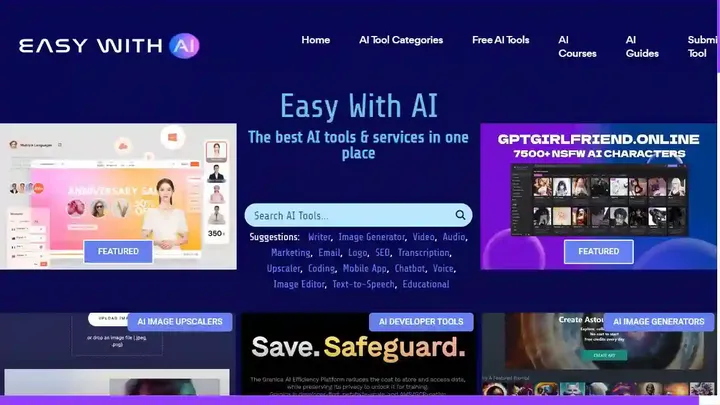The Ultimate Guide to AI 'Smash or Pass': Features, Uses, and Controversies
Introduction to AI 'Smash or Pass'
The 'Smash or Pass' game has captivated audiences as an entertaining way to evaluate attraction. Originally, this game involved players assessing an individual's sexual desirability, deciding whether to 'smash' (indicating interest) or 'pass' (indicating disinterest). Traditionally focused on celebrities, fictional characters, or acquaintances, it has evolved with technology. Integrating AI into this concept has added complexity and depth, transforming a simple pastime into a nuanced digital interaction.
How AI 'Smash or Pass' Works
AI 'Smash or Pass' platforms utilize sophisticated algorithms to enhance the game. These systems often rely on text-to-image plugins, a type of generative AI technology. By processing input data, such as user preferences, these algorithms generate images or descriptions that players evaluate. This technological framework introduces a layer of objectivity, albeit filtered through the subjective lens of AI programming.
Popular AI 'Smash or Pass' Platforms
Several platforms have capitalized on the popularity of AI-driven 'Smash or Pass'. Websites like Smashorpass.app utilize AI-generated images, offering users a novel experience. These platforms aim to provide engaging and interactive interfaces, elevating the user's role from a passive observer to an active participant in the AI-driven game. The result is a dynamic environment where technology and social interaction converge.
Features and Innovations
AI 'Smash or Pass' tools feature customizable settings, allowing users to tailor their experiences. By editing prompts and utilizing notations, players introduce elements of randomness and personalization. Such innovations enhance user engagement, encouraging users to explore the creative potential of AI-generated content. This interactivity represents a significant stride in AI application, fostering a more immersive gaming experience.
Controversies and Ethical Considerations
Despite its popularity, the AI 'Smash or Pass' game has sparked controversies. Some platforms have inadvertently facilitated unethical behavior, including the non-consensual use of personal images. This raises critical ethical questions about privacy and objectification in digital spaces. As these tools evolve, addressing such concerns becomes paramount, mandating a balanced approach to innovation and ethical responsibility.
Comparison with Traditional 'Smash or Pass' Games
AI-enhanced 'Smash or Pass' games diverge significantly from their traditional counterparts. While both formats offer entertainment and social interaction, AI versions introduce advanced technological elements, such as generative algorithms and customization features. These enhancements shift user interaction from a simple judgment-based game to a multifaceted digital experience, reflecting broader trends in gaming technology.
Future of AI in Evaluating Attraction
The future of AI in games like 'Smash or Pass' holds exciting possibilities. Experts speculate that advancements in AI could lead to more nuanced and context-aware platforms. These tools may further blur the lines between game and reality, offering deeper insights into human preferences and digital interactions. As AI technology continues to evolve, its role in shaping social games is bound to expand, inviting both innovation and introspection.











